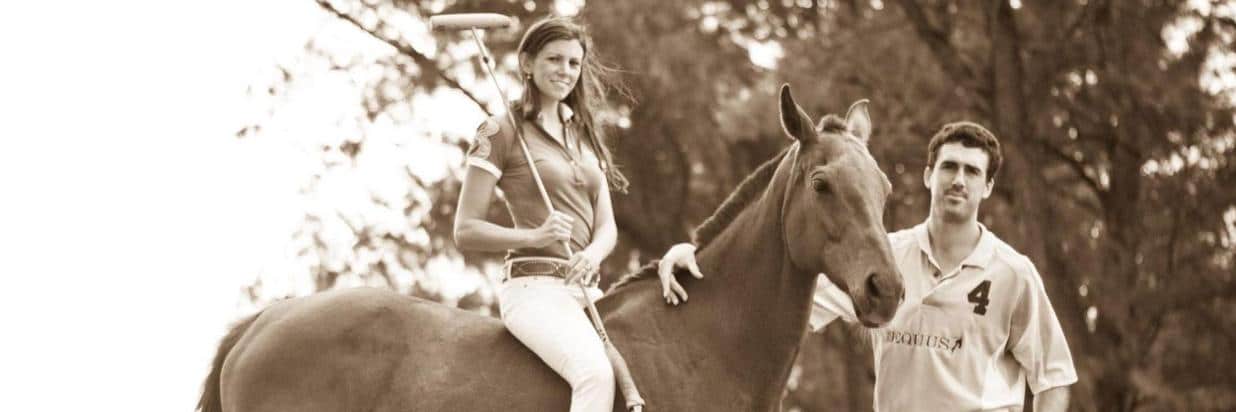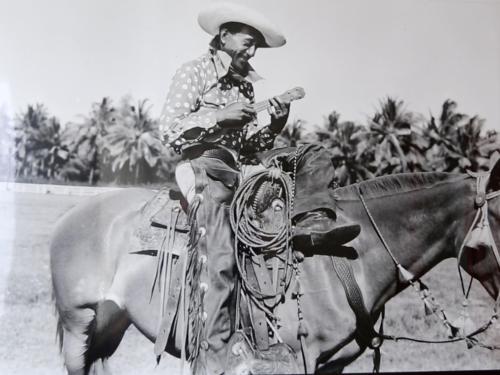
History

Family owned and operated
Equus Hotel has a unique history that gives rise to its name and equestrian theme. Unlike any other hotel in Waikiki, it is rooted in the elegant and exciting sport of polo and inspired by Hawaii’s fascinating paniolo history. Through the hallways of the hotel, guests can get a glimpse of paniolos in the old days through vintage family photos.
The hotel is owned by the Daileys, a local family with equestrian roots. Mike Daily was born and raised in Oahu surrounded by horses and polo culture. The history of The Equus dates back to the 1950s, when Mike’s father, Fred Dailey, built and opened the iconic Waikikian Hotel. Back then there were only a handful of hotels in Waikiki.
On the heels of World War II, Fred helped revive the sport of polo in Hawaii from its war-time pause by forming the Waikiki Polo Club in 1956. The Waikikian was a major sponsor of polo in the 50s and early 60s and hosted all the visiting players and teams, including Great Britain’s Prince Charles.
Meanwhile, Fred had a role in building the Old Driftwood Hotel in the mid-60s. When the Waikikian was sold in the late 1970s, the polo connection with a Waikiki hotel was lost until Fred’s son, Mike, assumed ownership of the old Driftwood Hotel in 1990.
After multiple renovations and the care that only a family-owned and operated business can provide, the hotel was re-named The Equus Hotel. The Equus was lovingly designed by Mike’s wife, Becca Dailey, who created the distinct flavor and charm of the hotel. Becca received the BIA Renaissance Building and Remodeling Award for the redesign.
To this day, Mike, Becca, Devon and Mariah Dailey continue to operate The Equus, which still serves as the headquarters for the Hawaii Polo Club. Each year, The Equus hosts a variety of visiting teams and players from around the world and shares the history of the inspiring paniolo with its guests.
History Of The Hawaiian Paniolo
Hawaiian polo is rooted in paniolo culture. The paniolo history of Hawaii is extremely exciting and colorful.
Many visitors coming to the Hawaiian Islands are surprised to learn that there is a thriving cattle industry here, particularly on the Big Island. Although the former sugar and pineapple plantations and kona coffee are familiar, real live cowboys, or paniolos, seem strange and oddly out of place to the visitors. They ask, “how did cattle and cowboys ever come to Hawaii?”
Cattle came to the Big Island of Hawaii way back in 1793 when an English ship’s captain and explorer, George Vancouver, brought them to King Kamehameha I as a present. It wasn’t not long before these cattle became a nuisance! Having free rein and no predators, they began to do serious damage to the native forests in the Mauka (mountain) lands, and they frequently foraged in the gardens of the maikai (lower, oceanside) lands, where the villagers grew their sweet potato, yam, taro and other crops. Cattle fences of volcanic rock and even papipi (fences of prickly pear cactus) proved to be inadequate protection against these strong, fierce and determined beasts. By the early 1830s, the wild herds of cattle were so vast and dangerous that something had to be done.
King Kamehameha III recognized the need to bring them under control, so he sent a high chief to Spanish California to bring back men experienced in herding cattle. Their job would be to round up the battle and to train Hawaiians to do the same. By then, the animals were not only on the Big Island, but also on Oahu, Maui and Kauai. And so the culture of the Hawaiian paniolo was born!
What is life as a paniolo like today? A little tamer, perhaps, but there is still a lot of hard work to be done on a modern ranch.
Today you just might find a group of Paniolos relaxing at a favorite watering hole – dressed in blue jeans, cowboy boots and a cowboy hat, perhaps with a Hawaiian lei around it – listening to the distinctive slack-key guitar music that is a local trademark, or perhaps joining in an old-time favorite Hawaiian song.




